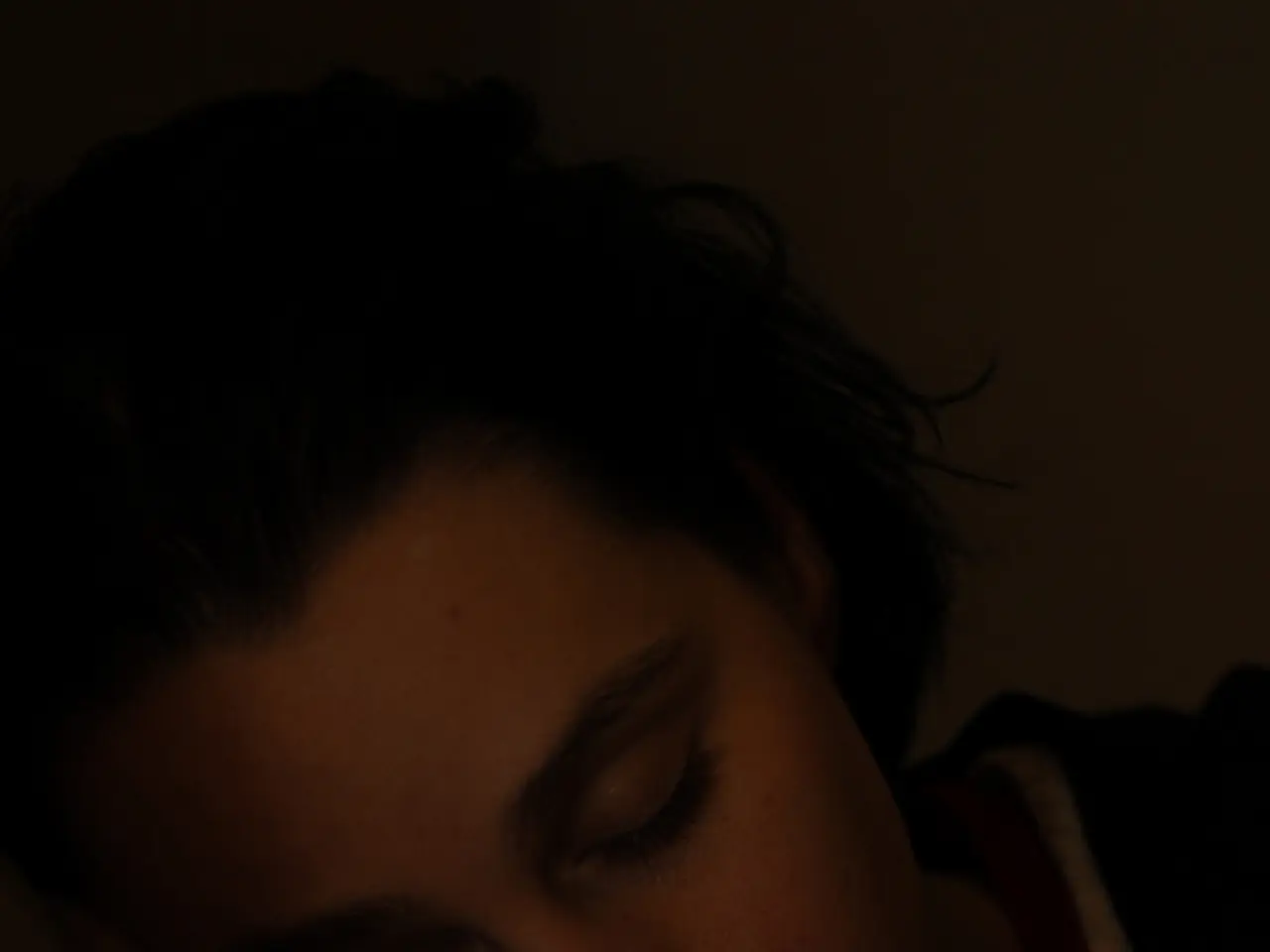Mystery Sleep Disorder: Identifying Causes, Exploring Remedies, and Delving Deeper
In the realm of sleep disorders, sudden insomnia in adults can be a perplexing and distressing issue. This article aims to shed light on the common causes, effects, and treatments for this condition.
Sudden insomnia in adults is often multifactorial, with psychological, physiological, and lifestyle factors at play. Stress and anxiety are leading triggers, causing heightened mental tension that disrupts sleep initiation and maintenance [1][4]. Poor sleep habits, including irregular sleep schedules, screen exposure before bed, and late caffeine or large meals, can upset the circadian rhythm and precipitate insomnia [1].
Mental health issues like depression and anxiety are strongly linked to insomnia; even after treating these conditions, insomnia may persist, indicating a complex relationship [3][4]. Medical conditions such as chronic pain, arthritis, heart failure, asthma, hyperthyroidism, and neurological disorders can directly impair sleep [2][3][4]. Hormonal imbalances, example during menopause or thyroid dysfunction, can impair sleep regulation [1][4]. Medications and stimulants including certain prescriptions, nicotine, and energy drinks can cause insomnia onset [1][4]. Metabolic disruptions such as blood sugar swings during the night can cause awakenings and difficulty sleeping [5].
Insomnia can cause serious issues such as daytime sleepiness, intense fatigue, depression, stress, difficulty concentrating, work or relationship problems, and may be a risk factor for other diseases [6]. If people develop other symptoms along with insomnia, if their insomnia progressively worsens or does not improve with home treatment, if they can only sleep with the use of medication sleep aids, or if they have mental health issues such as anxiety or depression, they should see a doctor [6].
Treatments for sudden insomnia typically involve addressing underlying causes and implementing behavioral and lifestyle modifications. Improving sleep hygiene, including establishing regular sleep schedules, reducing screen exposure before bed, avoiding heavy meals and caffeine in the evening, and limiting daytime naps [1][4] is a crucial step. Stress management and cognitive behavioral therapy for insomnia (CBT-I) are effective for reducing anxiety-induced sleep problems [1][3]. Addressing medical or psychiatric conditions with appropriate therapies or medication adjustments is crucial [2][3][4]. Medication may be used short-term in some cases but is generally not a first-line long-term solution [2][4]. Holistic, personalized approaches considering biopsychosocial factors yield the best results, especially when multiple causes coexist [3][4].
During early pregnancy, insomnia can be caused by nausea and vomiting from morning sickness, a rise in progesterone, back pain, and more frequent urination. Treatments for insomnia may include sleep hygiene, a consistent sleep routine, sleep restriction, psychotherapy (including CBT-I), and avoiding sleep medications for long-term use. Chronic mental health issues such as depression can lead to sleep difficulties.
In summary, sudden insomnia in adults is usually multifactorial with psychological, physiological, and lifestyle contributors; targeted treatments focus on behavioral changes, managing health disorders, and stress reduction to restore normal sleep patterns [1][3][4].
- The complex relationship between mental health issues like depression and anxiety, and insomnia, indicates that even after treating these conditions, insomnia may persist.
- Poor sleep habits, including irregular sleep schedules, screen exposure before bed, and late caffeine or large meals, are factors that can upset the circadian rhythm and precipitate insomnia.
- Treatments for sudden insomnia often involve addressing underlying causes and implementing behavioral and lifestyle modifications, such as improving sleep hygiene and implementing stress management techniques.
- Metabolic disruptions such as blood sugar swings during the night can cause awakenings and difficulty sleeping, and may contribute to the development of insomnia.
- Insomnia can cause serious issues such as daytime sleepiness, depression, stress, and difficulty concentrating, and can be a risk factor for other diseases, making it important for individuals experiencing insomnia to seek medical attention if symptoms worsen or do not improve with home treatment.




